Hugo
Martin Scorsese’s ode to cinema is heartfelt, visually ravishing stuff
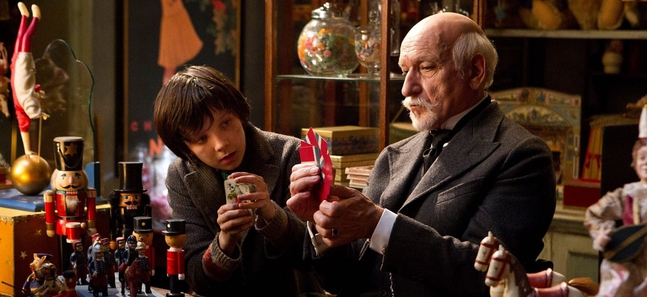
(C) 2011 Paramount Pictures. All Rights Reserved
Posted: Wed Feb 29 2012
Director: Martin Scorsese
Starring: Asa Butterfield, Chloe Moretz, Ben Kingsley
Time Out rating: 
Japanese title: Hugo no Fushigina Hatsumei
What an exceptionally un-Martin Scorsese-like film Hugo appears to be on the surface: a 3D festive kids’ adventure with a boo-hiss baddie set on the not-so-mean streets of 1930s Paris. And yet it is possible this is one of the director’s most personal films: a love letter to cinema, to the magical emotional imperfection of celluloid just as its days are numbered. It’s a film about making films, about losing your heart – and finding yourself – in a pitch-black movie theatre.
On one level Hugo is simply a dazzling children’s fairy tale adapted by John Logan (The Aviator) from Brian Selznick’s 2007 graphic novel and deploying the latest CG technology bewitchingly to create its Paris setting. This isn’t real Paris, but reel Paris – bigger and better, more magical than life. Fourteen-year-old Londoner Asa Butterfield stars and has exactly the right sad little soulful face and intelligence to play the orphaned Hugo – who lives secretly in the eaves of a Paris station winding up the clocks. He’s trying to fix an automaton that his watchmaker dad (Jude Law) worked on before his death – a little mechanical man holding a fountain pen. Hugo believes the automaton will summon up a message from beyond the grave and enlists the help of gung-ho tomboy Isabelle (Chlöe Grace Moretz of Kick Ass, a dash too peppy).
The mystery of the automaton leads not to Hugo’s dad but to the movies – specifically the birth of cinema and director Georges Méliès, played superbly by Ben Kingsley as a study in wounded pride. This part of the story is borrowed from life: Méliès was a magician-turned-early cinema pioneer. After falling from grace, most of his 500 or so films were destroyed; Méliès was discovered years later working as a toymaker in Paris’s Montparnasse station. Here’s an irresistible autobiographical parallel: Scorsese famously ‘found’ director Michael Powell in the ’70s – like Méliès, forgotten and on his uppers. And one of his enduring gifts to cinema has been preserving and restoring films.
Scorsese takes us on a whistle-stop tour of cinema history (which may leave smaller kids squirming and bored). Hugo and Isabelle watch Harold Lloyd. There’s a flashback to Méliès seeing the Lumière Brothers’ film of a train pulling into a station. The audience ducks – as they really did. It’s a terrifically cinéastic defence of 3D: movies were always meant to jump out of the screen at you, Scorsese is saying. And he puts 3D to good use: yes, in the complex machinations of the station’s huge clocks, but most satisfyingly in his actors’ faces which light up the screen with depth and beauty.
The cast is mostly British, giving the whole thing a Dickensian feel, with many nods to the slapstick of early silents. Sacha Baron Cohen plays the villain of the piece, the station’s policeman, like a cross between the Child Catcher in Chitty Chitty Bang Bang and Mr Bumble the beadle in Oliver! Some of this is broad and the gags wheeze a little. It’s all a little too patchy to be truly great and the story splutters along in places, but Hugo’s quixotic faith in movies is intoxicating: ‘If you ever wondered where your dreams come from, they’re made here,’ says Kingsley’s Méliès. It might be curtains for celluloid, but Scorsese, a boyish 69, clearly isn’t leaving the stage any time soon. He directs every film with the passion of his first. And it shows.
Hugo opens nationwide on March 1
Tweets
- About Us |
- Work for Time Out |
- Send us info |
- Advertising |
- Mobile edition |
- Terms & Conditions |
- Privacy policy |
- Contact Us
Copyright © 2014 Time Out Tokyo










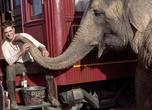
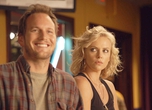
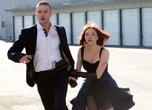
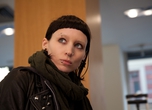
Add your comment